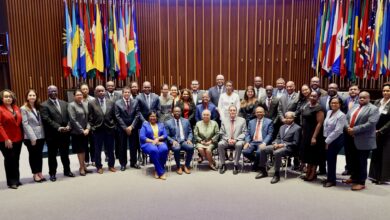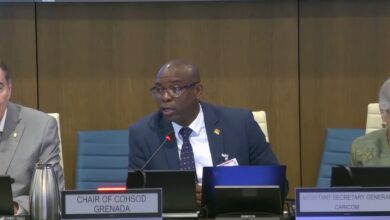With growing concerns over more people being infected with the Zika virus, the Caribbean Public Health Agency (CARPHA) has said Zika blood samples, for laboratory confirmation, must be taken and sent to the agency no more than five days from the onset of the first sign of illness.
Based on the technology the agency uses to perform the Zika tests, Executive Director at the CARPHA, Dr James Hospedales said any samples received after a five-day period may not be valid for testing.
He pointed out that since dengue and chikungunya are still circulating in the region, and the symptoms are similar, CARPHA routinely tests all samples for these three diseases.
The health agency has also placed a limit on the number of samples countries can send for testing each week.
According to Chief Medical Officer Rhonda Sealy Thomas, they were advised by the agency recently of this development.
“Now that we’ve established that Zika is in the Caribbean, and with increasing local transmission in various territories, they’re advising countries not to send every suspected case, and only about five samples per week are taken per country, and maybe in only severe cases where the officials need to make a diagnosis under special circumstances.”
CARPHA is one of only two laboratories in the English-speaking Caribbean that has the technical capacity to accurately test for the Zika virus. Realising the important role the health agency plays, it continues to work on offering additional testing methods that are valid beyond five days.
The agency is reporting that local transmission of the Zika virus has been reported in 45 Caribbean and Latin American states, with almost all CARPHA member states having confirmed cases. In countries where local transmission has already been confirmed, there is no need for everyone to be tested.
In light of this, only persons who are in ‘high risk’ categories, such as pregnant women, children under five years, adults over 65 years, hospitalised patients and persons with chronic illnesses will be tested.
To date, Antigua & Barbuda has reported seven confirmed Zika cases, to include two imported and five locally transmitted cases.
CARPHA has also confirmed they don’t accept samples directly from the public, nor does it draw a person’s blood, and is therefore appealing to persons exhibiting symptoms of Zika such as fever, rash, red eyes, muscle and joint pains, to visit their health care provider.
In countries where local transmission has not yet been established, CARPHA will continue to receive and test samples from the national referral laboratories in member states.






